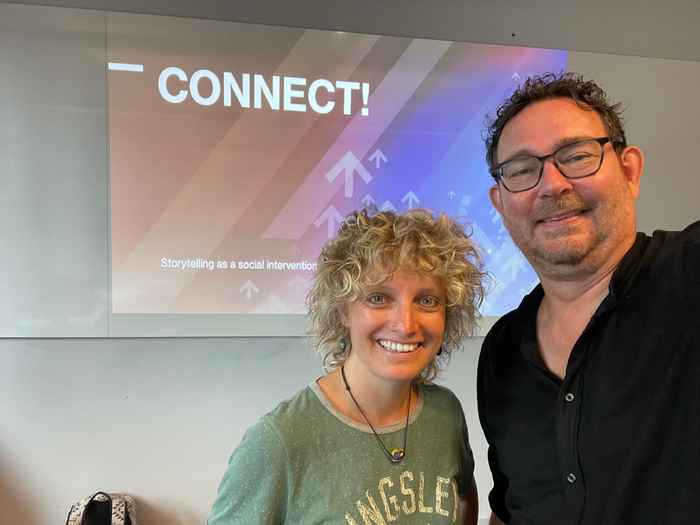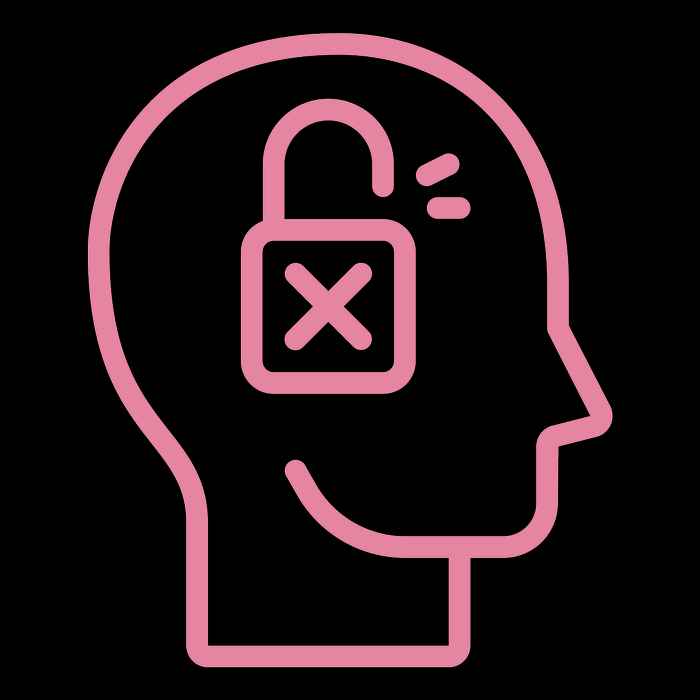Transition Makers tools in the Honours module 'Connect! Storytelling as a Social Intervention'
22 October 2024

Practical tools for understanding diverse perspectives
The lecturers combine theoretical insights with practical tools, with a focus on understanding different perspectives. During one of the sessions, the teachers applied two learning activities from the Transition Makers Toolbox: Deep Listening and Experiencing Interdisciplinarity. These tools help students improve their understanding of the complex social dynamics in their cases, which is one of the course's learning outcomes.
Learning to listen without judgement: the power of Deep Listening
Bianca shares enthusiastically: "In storytelling, telling is important, but listening is just as crucial, so we wanted to pass that on to the students. Deep Listening is an exercise where you learn to listen, without interrupting or immediately offering counterarguments. The idea is for students to experience how important it can be to give someone the space to tell their story, because without ‘story listening’, there is no ‘storytelling’."
Arjen and Bianca adapted this tool to align with a storytelling exercise where students narrate a story based on a photo on their phone. Bianca continues: "Students appreciated being able to tell a story without being uninterrupted, as seminar discussions often provoke responses or debates. This is often overlooked in education, even though these skills are so important."
The exercise also requires the emotional involvement of the students. Bianca adds: "One pair found the exchange of personal stories a bit uncomfortable, while another pair immediately had the courage to delve deeper. This made students realise that groups in Nieuw-West might also experience a wide range of feelings when sharing their stories."

The bigger picture: the value of interdisciplinarity
Bianca continues: "We thought it would be good for the students, who all come from different degree programmes, to learn how to make more use of each other's knowledge and skills by working on interdisciplinarity."
To broaden the students' perspectives, the tool 'Experiencing Interdisciplinarity' was used. In this exercise, students analysed news reports and newspaper articles on polarisation from different disciplines. They create a mind map that incorporates both the fields from the article and their academic disciplines.
Bianca shares: "At first, students found the interdisciplinary approach challenging, but they soon realised that viewing a problem from different perspectives is essential. One student said that he could never imagine conducting research without looking at the bigger picture, so he found it very valuable to see the different perspectives."
From theory to practice: the impact of tools
Bianca concludes: "In our course, students work towards a plan where they use storytelling as a social intervention to bring polarised groups closer together. The tools in the Toolbox on perspective skills and communication provide guidance for this.
My advice for other teachers is to browse the Toolbox and get inspired. Dare to experiment and see the tools as building blocks that you can adapt to fit in the context of your course."
More information
The tools ‘Deep Listening’ and ‘Experiencing Interdisciplinarity’ can be found in the Transition Makers Toolbox, a collaboration between the IIS and the EWUU alliance.
Read more about the Honours Module ‘Connect! Storytelling as a Social Intervention’.